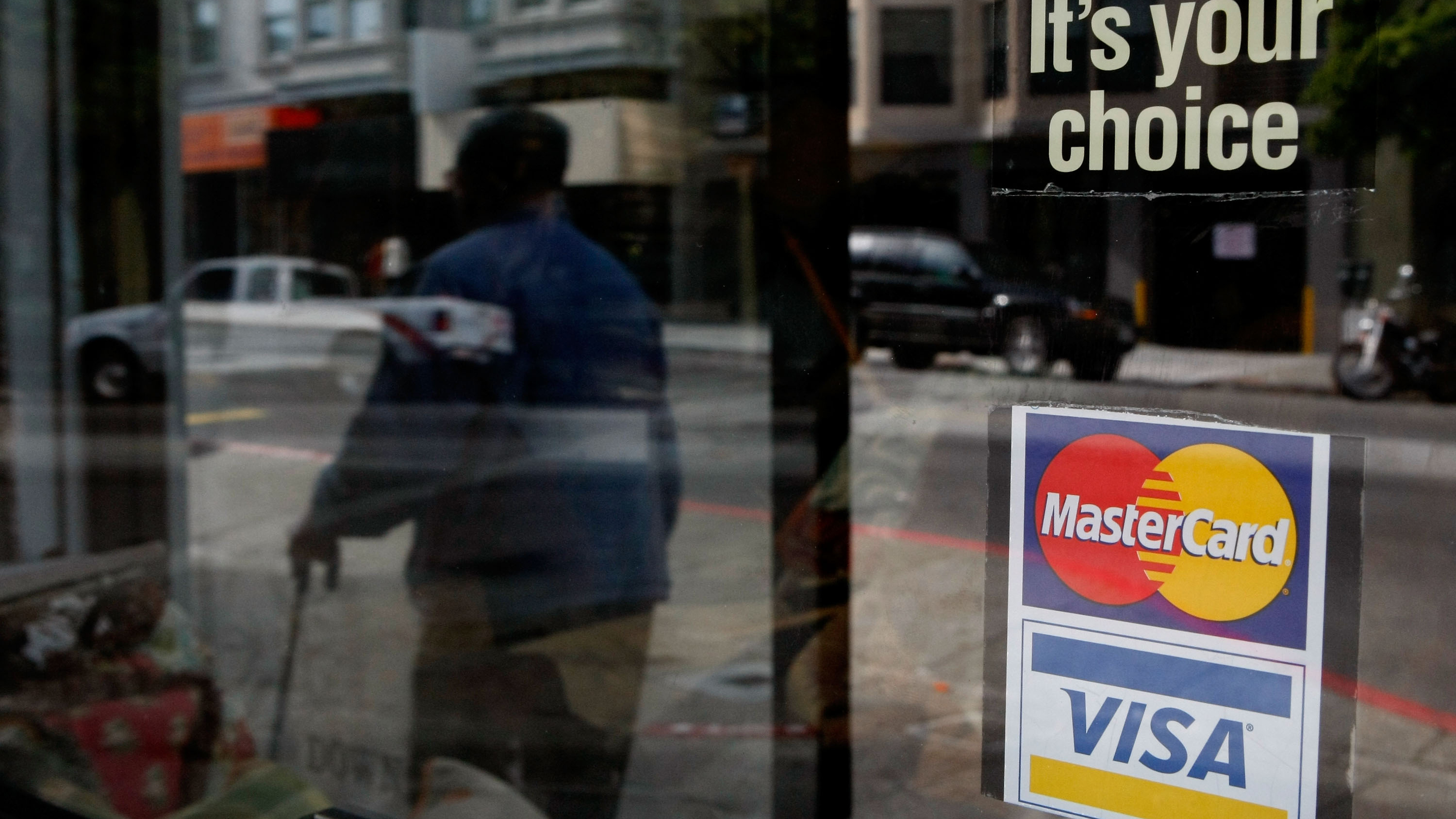Interchange fee hike creating waves

The contentious issue of interchange fees rages on as Visa and Mastercard get ready for their five-fold fee hike.
Visa and Mastercard will raise interchange fees on cross-border payments between the UK and the EU in October 2021. The move is being framed as an inevitable outcome of Brexit: the UK’s status as a third country in relation to the EU means payments between the two jurisdictions are classed as “interregional” and subject to a different fee structure.
Higher payment costs beckon for merchants in both jurisdictions as a result of the change, though issuing banks and other financial institutions that have partnered with the card giants can expect a revenue boost. It also marks another milestone in the ongoing tussle between payment providers, businesses, banks and regulators, over the application of interchange fees and their economic impact.
Legacy issue
Interchange fees are transaction fees that are paid by an acquiring bank (the bank of a merchant or retailer), to an issuing bank (the lender that issued the card to the consumer making a payment), but ultimately levied from the merchant. Typically, when the issuer sends its customer’s details through to the acquirer, a fee is retained to cover the costs of the transaction, such as fraud prevention, as well as system and handling costs. This four-party payment structure (acquirer, issuer, cardholder and merchant) is a legacy of a 1970s system devised by Bank of America for use with its ‘BankAmericard’ offering, the predecessor of Visa.
The financial industry as a whole, including the banking sector, has an interest in higher interchange fees
The application of interchange fees has been a source of contention for some time. The card schemes typically argue that if this fee did not exist, then the banks would find it too costly to operate card services and shoulder the expenses they incur, particularly around fraud prevention. In turn, this could stop some banks from issuing cards or even increase card fees in other ways. Moreover, Mastercard and Visa do not benefit directly from the interchange fee and instead operate a distinct network fee for their services.
“The card schemes won’t directly benefit. Interchange fees are not a source of revenue – they’re a by-product of a transaction. Fundamentally, if you’re providing a service then you’re entitled to be paid as such. If an issuer is providing a way for you to sell your product, good or service, then there is a tangible benefit to that,” says Alex Reddish, chief commercial officer at Tribe Payments, a payment technology provider.
Yet, merchants – and some regulators – argue that interchange fees increase costs for businesses and are applied in an opaque and complex way in different markets. Court cases, and disputes between merchants and the card companies, are frequent and include a June 2020 UK Supreme Court judgment on the issue of interchange fees and competition. For some, rising interchange fees point to wider problems that exist within the legacy financial system.
“It would be too easy to say that it’s all the fault of the card companies. The financial industry as a whole, including the banking sector, has an interest in higher interchange fees,” says Frank Breuss, co-founder and chief executive of Nikulipe, a fintech company providing local payment expertise as well as access to fast growing and emerging markets.
Contentious issue
Nevertheless, the card schemes do enjoy indirect benefits from increasing interchange costs. “Recently we have seen lots of e-money institutions take advantage of this business model to secure revenue from interchange fees. It’s something that Visa and Mastercard have noticed. The higher the reward they give to new starters and fintechs, the more likely it is that they will want to issue their cards. By extension, their own revenues will increase as they will have a larger pool of issuers issuing their cards,” says Andria Evripidou, public policy and compliance lead at Yapily, a fintech that offers open banking interfaces to businesses and banks.
Therefore, the decision by Visa and Mastercard to raise interchange fees in the wake of Brexit falls squarely in the middle of this debate. For many observers, the scale of the fee hikes is alarming: online credit card payments, for example, will be subject to a fee of 1.5% (up from 0.3%), while debit cards will be charged 1.15% (up from 0.2%), by both card networks. “If you look at it objectively, since Brexit, the legislation and the standards have not changed,” says Ms Evripidou. “The exchange rate hasn’t changed. The UK has always used the pound and the EU has always used the euro. So, it’s hard to justify [the fee increase] on the basis of risk, or exchange rates, or more expensive payment rails as even the infrastructure on which these payments run is the same.”
Unfair policy
Beyond the immediate issue of the fee structure, however, is the fact that interchange fees do not hit all merchants equally. Large businesses with a footprint across multiple markets can effectively route payments through the jurisdiction of choice to avoid incurring an interchange fee on a transaction. Small businesses do not have the same luxury. “The point is the big merchants and retailers aren’t really affected by rising interchange fees. They have a presence in the UK and EU, so they can process payments domestically. But it does hit smaller businesses who can’t afford to do this,” says Mr Breuss.
At a time when many small and medium-sized businesses are struggling through the Covid-19 pandemic, those who sell to customers in either the UK or EU are about to be hit with substantially higher payment costs. For some, this will be a significant blow, particularly since the EU introduced its Interchange Fee Regulation in 2015, which capped interchange fees at 0.2% for debit cards and 0.3% for credit cards. These numbers remain in place for all domestic payments, both in the EU and the UK, yet there appears to be little appetite to pursue a similar approach for cross-border payments.
“This is not a priority for politicians — [they’re] concerned about cheap domestic payments. They don’t mind so much about cross-border payments because if a UK citizen is purchasing something from the EU, it’s not their concern. But it’s a little bit short-sighted because it goes both ways,” says Mr Breuss.
Absent of any political will to address higher cross-border payment costs, particularly in card-centric markets such as the UK, change is coming from other sources. In particular, the rise of a new generation of fintechs that are able to offer payment solutions to merchants and consumers alike through open banking is now stepping up. Indeed, rising interchange fees could incentivise a change in payment behaviour from merchants who cater to customer segments in the UK or the EU by opening up to local payment methods in those countries.
“[Higher interchange fees] will further accelerate a trend that already exists — local payment methods are overtaking cards. If you increase the fees for merchants, they might be more willing to also offer local payment methods in addition to cards. This is where fintechs that can offer these payment methods have a good opportunity to be present in more shops,” says Mr Breuss.
For their part, the card schemes are alert to the longer-term challenges presented by open banking-linked payment innovations. Strategic fintech acquisitions, including Visa’s $2.2bn June 2021 purchase of Sweden’s Tink, are evidence of this. “They realise that their market share is under pressure. We see more and more online payments going through different channels. So, they know that their customer’s revenues are likely to drop because consumers are using cards less,” says Ms Evripidou.
Many of these payment developments will take time to mature, however, before meaningful change occurs. Until that time, the question of interchange fees and their economic impact on small and medium-sized businesses, as well as the wider economies in which they serve, will continue. With some interchange fees also due to rise for US domestic payments in April 2022, there is little sign of the debate easing any time soon.



